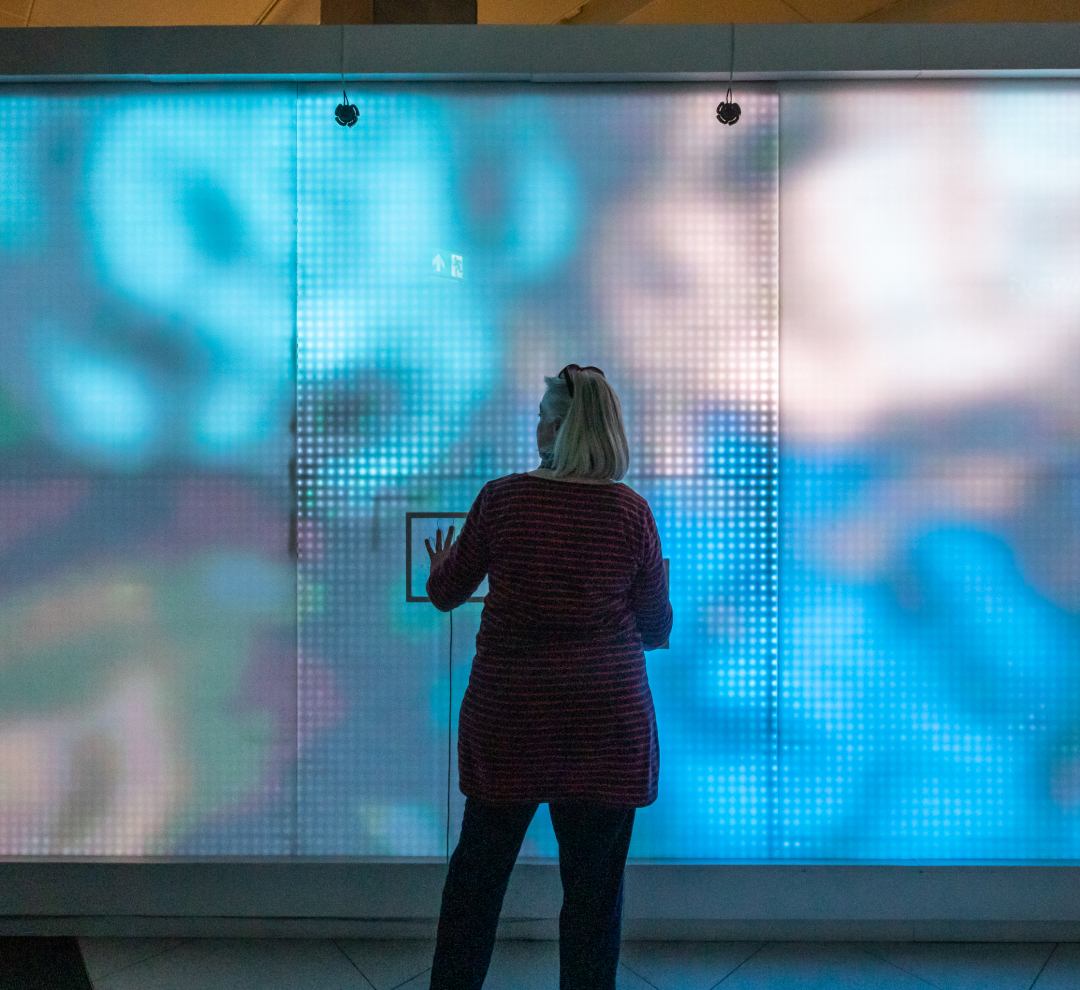2021
Creative Informatics Equality, Diversity, and Inclusion Policy & Action Plan 2021-23
The Creative Informatics Equality, Diversity, and Inclusion Policy & Action Plan (2021-2023) articulates our approach to equality, diversity and inclusion as a publicly funded project operating in Edinburgh and South East Scotland. Our approach has always been framed by the community around us, as well as being mindful of both local and global inequalities. We clearly set out how we aimed to ensure we took an equal and inclusive approach, and include our proposed data publication schema to hold us to account. Osborne, N., Orme, A., Chan, K., Speed, C., Terras, M., Coleman, S., Gormezano Marks, A., Smyth, M., Somerville, R., Parkinson, C., & Turner, M. (2021). Creative Informatics Equality, Diversity, and Inclusion Policy & Action Plan 2021-23 (1.1). https://doi.org/10.5281/zenodo.5227270
2021
Twentyfourty – Utopias For a Digital Society
CI Co-Director Burkhard Schafer's contributes to TWENTYFORTY. Utopias for a Digital Society (ed. Benedikt Fecher) which comprises thirteen pieces of creative fiction looking at problems that arise in an ever more digitized world. Set in 2040 – sometimes utopian, sometimes dystopian – the texts reflect present problems in the relationship between the digital and the social. Written and published just before the COVID-19 pandemic, the book projects a future that now feels stilted. As an attempt by academics to think differently, shift genres and expand audiences, it is an interesting, if unlikely, experiment in imagining utopia. Djordjevic, E., 2021. An Academic Experiment in Utopia. KULT_online, (63). https://doi.org/10.22029/ko.2021.1112
2021
Reconciling the Gap Between Seamless and Seamful design approaches
This paper explores conceptually and empirically the complex and multi-layered networks of interaction where personal data is shared across different platforms. Soares, L., Speed, C., Stewart, J. and Alexander, D., 2021, December. A ‘seamless’ experience of data sharing through a ‘seamful’engagement. In 14th International Conference of the European Academy of Design, Safe Harbors for Design Research. Blucher. https://doi.org./10.5151/ead2021-144
2021
Crypto Collectibles, Museum Funding and OpenGLAM: Challenges, Opportunities and the Potential of Non-Fungible Tokens (NFTs)
Non-fungible tokens (NFTs) make it technically possible for digital assets to be owned and traded, introducing the concept of scarcity in the digital realm for the first time. Resulting from this technical development, this paper asks the question, do they provide an opportunity for fundraising for galleries, libraries, archives and museums (GLAM), by selling ownership of digital copies of their collections? Valeonti, F., Bikakis, A., Terras, M., Speed, C., Hudson-Smith, A. and Chalkias, K., 2021. Crypto collectibles, museum funding and OpenGLAM: challenges, opportunities and the potential of Non-Fungible Tokens (NFTs). Applied Sciences, 11(21), p.9931. https://doi.org./10.3390/app11219931
2021
A Right Time to Give: Beyond Saving Time in Automated Conditional Donations
Smart Donations is a blockchain-based platform that offers users ‘contracts’ that donate funds to certain causes in response to real-world events e.g., whenever an earthquake is detected or an activist tweets about refugees. We designed Smart donations with Oxfam Australia, trialled it for 8-weeks with 86 people, recorded platform analytics and qualitatively analysed questionnaires and interviews about user experiences. Bidwell, N.J., Elsden, C., Trotter, L., Hallwright, J., Moore, S., Jeite-Delbridge, K., Harding, M., Shaw, P., Davies, N., Speed, C. and Vines, J., 2021, May. A Right Time to Give: Beyond Saving Time in Automated Conditional Donations. In Proceedings of the 2021 CHI Conference on Human Factors in Computing Systems (pp. 1-20). https://doi.org/10.1145/3411764.3445371
2021
Distributed Perception – Resonances and Axiologies
Creative Infornatics' Founding Director Chris Speed and Researcher Martin Disley's contribution to the book Distributed Perception (Lushetich, N, and Campbell, I. eds) is a Case Study focussing on creative praxis. Speed, C. and Disley, M., 2021. 11 Intra-actions in data-driven systems. Distributed Perception: Resonances and Axiologies, p.86. https://doi.org./10.4324/9781003157021-14
2021
Plugging the Data Gap: Freelance Workers in the Creative Industries
Paper looking at the lack of data on the self-employed and freelance workforce which, given the proliferation of freelance roles is of particular concern in the creative sector. Panneels, I., Terras, M., Jones, C., Helgason, I. and Komorowski, M., 2021. Plugging the Data Gap: Freelance Workers in the Creative Industries. https://www.napier.ac.uk/research-and-innovation/research-search/outputs/plugging-the-data-gap-freelance-workers-in-the-creative-industries
2021
A ‘Seamless’ Experience Of Data Sharing Through a ‘Seamful’ Engagement
This paper explores conceptually and empirically the complex and multi-layered networks of interaction where personal data is shared across different platforms. Soares, L., Speed, C., Stewart, J. and Alexander, D., 2021, December. A ‘seamless’ experience of data sharing through a ‘seamful’engagement. In 14th International Conference of the European Academy of Design, Safe Harbors for Design Research. Blucher. https://doi.org./10.5151/ead2021-144
2021
Making Everyday Things Talk: Speculative Conversations into the Future of Voice Interfaces at Home
What if things had a voice? What if we could talk directly to things instead of using a mediating voice interface such as an Alexa or a Google Assistant? In this paper, we share our insights from talking to a pair of boots, a tampon, a perfume bottle, and toilet paper among other everyday things to explore their conversational capabilities. We conducted Thing Interviews using a more-than-human design approach to discover a thing’s perspectives, worldviews and its relations to other humans and nonhumans. Based on our analysis of the speculative conversations, we identified some themes characterizing the emergent qualities of people’s relationships with everyday things. We believe the themes presented in the paper may inspire future research on designing everyday things with conversational capabilities at home. Reddy, A., Kocaballi, A.B., Nicenboim, I., Søndergaard, M.L.J., Lupetti, M.L., Key, C., Speed, C., Lockton, D., Giaccardi, E., Grommé, F. and Robbins, H., 2021, May. Making everyday things talk: Speculative conversations into the future of voice interfaces at home. In Extended abstracts of the 2021 CHI conference on human factors in computing systems (pp. 1-16). https://doi.org./10.1145/3411763.3450390
2021
Speculative Design in Education: Mapping the Landscape
This paper presents findings from a recent European-wide study on the use of Speculative Design approaches within education. The study included a survey of design educators and interviews with Speculative Design practitioners. Helgason, I., Hanna, J., Auger, J., Encinas, E. and Smyth, M., 2021. Speculative Design in Education: Mapping the Landscape. http://researchrepository.napier.ac.uk/Output/2748285
